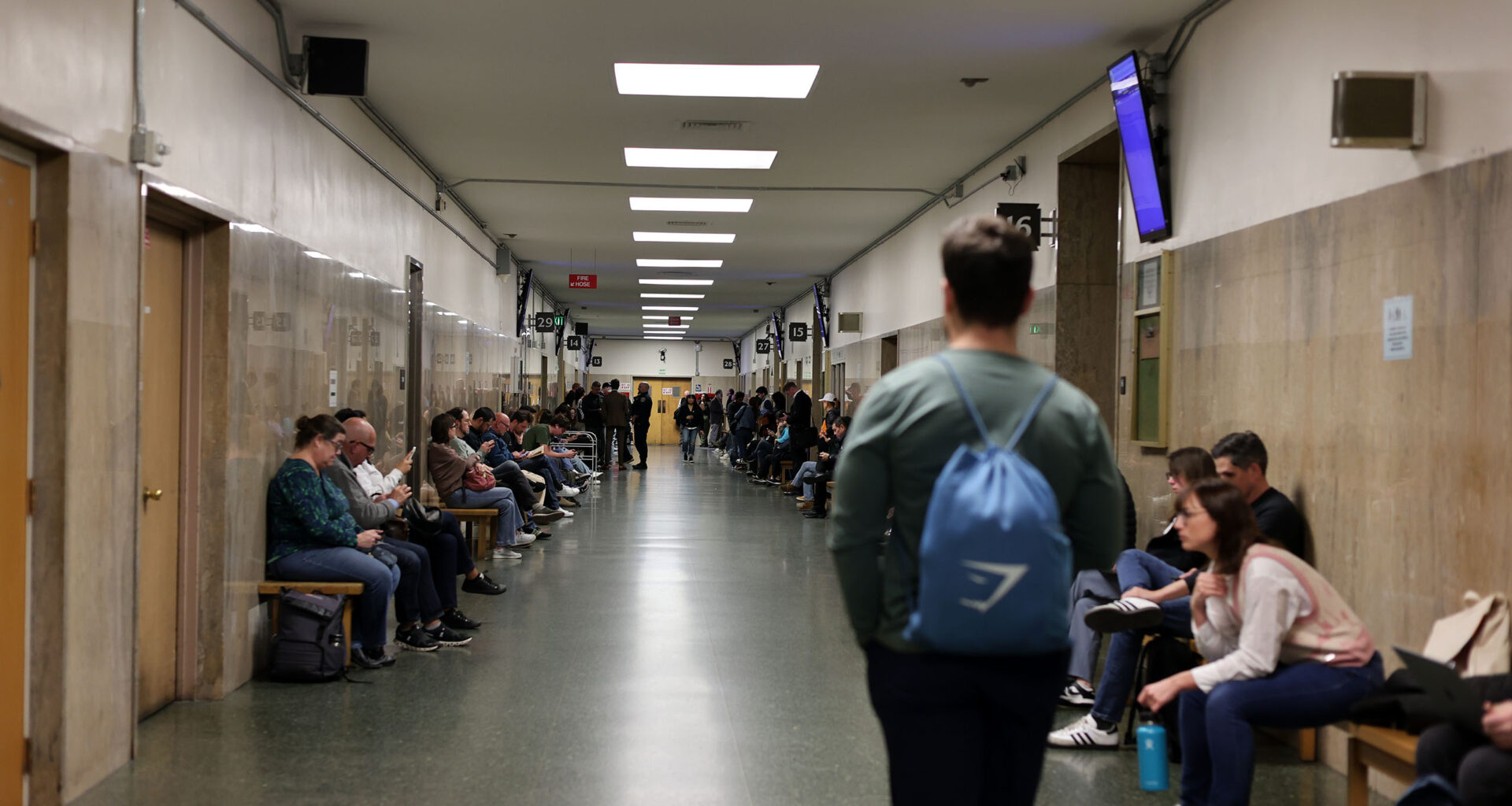The San Francisco city controller will scrutinize a steep rise in criminal cases that has become so burdensome for the city’s court system over the past months that judges said this week they may release suspects who do not have access to lawyers.
The controller is taking a hard look at case loads in both the district attorney’s office and the public defender’s office. District Attorney Brooke Jenkins has prosecuted more misdemeanor cases in her three years in office, and the public defender’s office has been subsequently pushed to a “breaking point,” Public Defender Raju said.
Public defenders in May they began declaring themselves “unavailable” for new criminal cases one day a week. In a letter that month, Chief Attorney Matt Gonzalez with the public defender’s office wrote that the office had seen 200 more cases than usual during the first four months of this year.
The court system is feeling the burden. It’s “facing an unprecedented number of misdemeanor cases, most of which must be brought to trial within 45 days,” said a San Francisco Superior Court statement.
Jenkins, for her part, described the public defender’s unavailability as a “dereliction of duty” the court was “complicit” in for releasing “felons” instead of appointing the public defender take them on.
It’s not just public defenders who say they are overwhelmed. To meet demand, private defense attorneys with the San Francisco Bar Association had been taking cases that would have been assigned to public defenders. But this week, the Bar said it can no longer accept new clients.
The strain of more cases prompted Mayor Daniel Lurie’s office in August to ask the controller, who manages the city’s finances and conducts audits, to look into the DA’s and public defender’s workloads.
That report, which is underway, will be used to “consider future staff” for both offices, said Kate Poltrack, a spokesperson for the mayor’s office. Both the DA and public defender’s office had asked for more funding this budget cycle.
The public defender’s office said it would embrace the investigation. In a Sept. 16 letter to Steven Betz, the mayor’s assistant chief of public safety, Raju wrote that he would “welcome an audit by the Controller’s Office.”
His office is “duty bound to decline new cases when — due to understaffing and underfunding by the City — accepting new cases will compromise the quality of representation we can provide to our existing clients,” Raju added.
“We are fully cooperating with the Mayor’s Office and Controller’s Office in this analysis,” the DA’s office said in a statement. “The study will look at the staffing and caseloads of each agency and provide the Mayor’s Office with recommendations for ways to optimize funding for our agencies and strengthen the criminal justice system.”
Jenkins’ three years in office have been marked by a focus on quality-of-life crimes, many of which are misdemeanors. “We are a city bogged down in low-level crime,” she said in May. If her department is unable to continue with its current pace of prosecutions, she said, “We will see a lack of accountability that moves us backwards in many of the issues we’re working hard to resolve on our streets.”
Misdemeanor prosecutions rose by 9 percent over the last year. Diversions, meanwhile, which let defendants complete alternative programs to have their records expunged, have fallen during Jenkins’ time in office.
 Hall of Justice at 850 Bryant St. on Feb. 24, 2022. Photo by Eleni Balakrishnan
Hall of Justice at 850 Bryant St. on Feb. 24, 2022. Photo by Eleni Balakrishnan
In recent weeks, arrestees have been kept in jail longer, until an attorney can be found to take their case. Sheriff’s deputies often bring defendants to court for a hearing only to take them back to jail when there is no one to represent them.
The pattern became so common that deputies began moving defendants with upcoming hearings to jails closer to the court, sources said, so they could transfer them more quickly.
The length of time defendants had to wait for an attorney reached what one person working in the court described as a “danger zone” last week: A person cannot be held in San Francisco jail for more than 48 hours if court is in session. If a judge cannot hear their case within the time period required by law, they are forced to dismiss it.
On Tuesday, the San Francisco Superior Court announced it would be required to release some prisoners from pre-trial custody because they had been waiting too long for representation.
Representatives from the public defender and DA’s offices will gather in Judge Harry Dorfman’s courtroom on Monday morning to discuss the spiraling problem of the lawyer shortage.
It’s an issue that repeatedly interrupts the judge’s felony arraignment schedule.
“Are we ready to do some work?” Dorfman asked his courtroom on Wednesday morning.
Dorfman paused, and corrected himself: “Are we able to do some work?”

